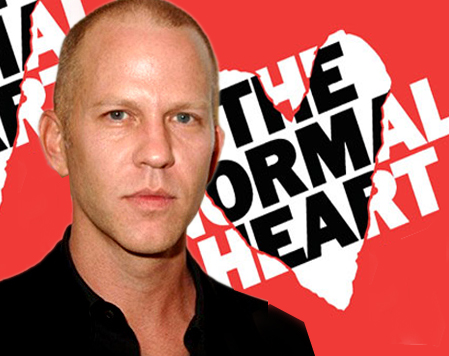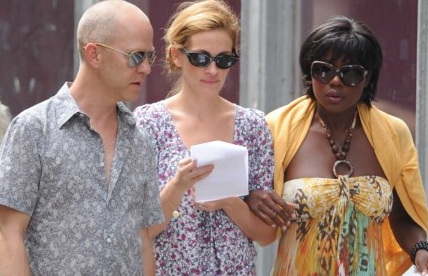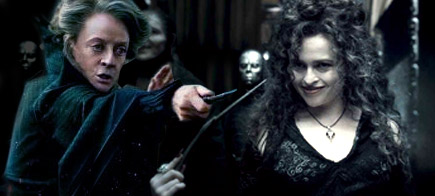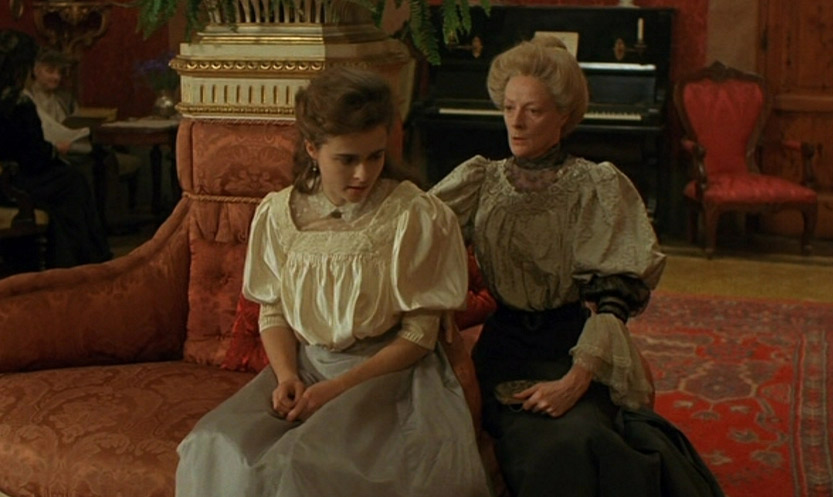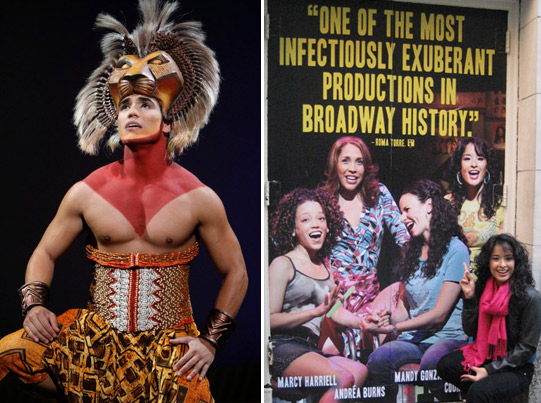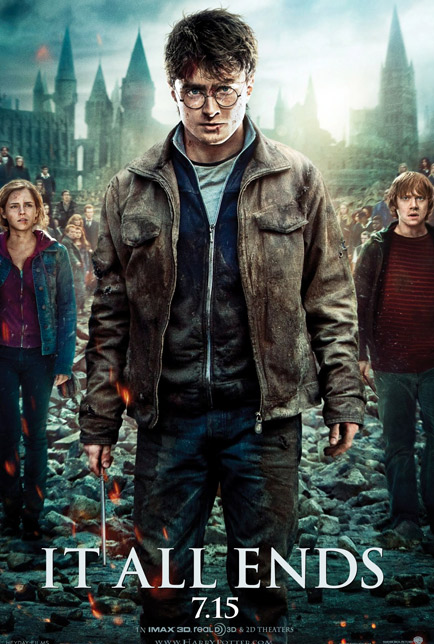 Hey all. I asked the team here at The Film Experience to say their goodbyes to Hogwarts and the Potter franchise now that Harry Potter and the Deathly Hallows Part Two has been viewed by everyone and their werewolf uncle. Y'all know how I feel about it but a huge scale of opinions and emotions swirling about out there. Each wand is unique and chooses its wizard or some such; we're all beautiful unique snowflakes!
Hey all. I asked the team here at The Film Experience to say their goodbyes to Hogwarts and the Potter franchise now that Harry Potter and the Deathly Hallows Part Two has been viewed by everyone and their werewolf uncle. Y'all know how I feel about it but a huge scale of opinions and emotions swirling about out there. Each wand is unique and chooses its wizard or some such; we're all beautiful unique snowflakes!
1. WHO WAS YOUR FAVORITE CHARACTER?
JA: I always gravitate towards the nerdy girls so my first thought was Hermione, but then she was swallowed whole by a tidal wave of Luna Lovegood affection. The casting people worked magic pretty much across the board but Evanna Lynch was an amazing find.
Andreas: Bellatrix, at least as portrayed by HBC. Cackling, sadistic, sexy -- I'd take her delightfully evil turn any day over her Oscar-nominated cheerleading in The King's Speech.
Kurt: Minerva McGonagall, and she gets two of the best lines in the new movie! Maggie Smith, ready to bring the thunder. Great.
Michael: Neville, Neville, Neville. The same weight of tragedy and depth of character as Harry without the cushy celebrity status or the unfortunate bouts of "woe is me" whining. All I care about in the last movie is his big moment with the Sword of Gryffindor. It should be the cinematic "Hell, yes!" equivalent of Viggo Mortenson jumping off that ship with the army of the dead at his back.
Jose: Snape of course!
2. WHICH PROFESSOR OF MAGIC WOULD YOU LOVE TO BE SCHOOLED BY?
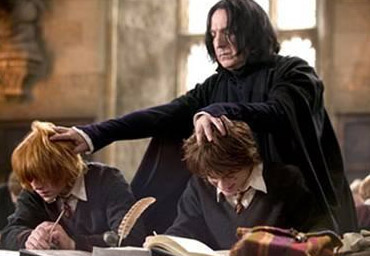 oh baby, talk dirty Rickman to me!
oh baby, talk dirty Rickman to me!
Jose: Snape of course! The Dark Arts sound like fun!
Michael: Snape, no contest. I don't care if he does nothing but heap abuse on me. I could still listen to Alan Rickman all day.
JA: Love Maggie Smith but Professor McGonagall would've made me cry with all those withering glances. Professor Flitwick would've been fun! I could've quotedWillow to him. "Some day, Burglekutt! Some day!!!"
Kurt: My first impulse is to say Dumbledore (he seems so cuddly), but he's technically not a teacher, so I'll go with McGonagall. To quote Larry Crowne (and I swear it's the one and ONLY time I'll quote Larry Crowne), she's tough but fair.
Andreas: I've always liked Remus Lupin. He's so mild-mannered and knowledgeable about all kinds of magic. He marries one of the other coolest people in the series, Tonks. And he's a conflicted werewolf, which is pretty badass. Definitely my prof of choice if I went to Hogwarts; I'm just disappointed that he got so little screen time before his sad off-screen death!
3. IF YOU COULD CHANGE ONE THING ABOUT THE SERIES, WHAT WOULD IT BE?
Andreas: I know it's crazy, but why not make it all animated? I feel like Studio Ghibli could do wonders with a complex magical fantasy like this. At the very least, they would've made the characters in the epilogue look convincingly older.
Kurt: That it could better balance its romances with its driving action. The juxtaposition of raging teen hormones and grave danger has usually been very effective, but the couplings have always felt like inauthentic footnotes. I really liked the final film, but I'd have been more invested had I given a hoot about Ron & Hermione, Harry & Ginny, and Luna & Neville "Never Met a Comic Relief Moment He Couldn't Fumble" Longbottom.
Jose: Have actual auteurs doing the directing work, other than Cuarón's film, none had any sense of real artistry and intention. They embodied the dullness that is adapting something just for the sake of it.
JA: Eight more movies!
Michael: Harry Potter and the Missed Opportunity
4. IN WHAT SORT OF OBJECTS WOULD WE BE LIKELY TO FIND YOUR HORCRUXES?
 via
via
JA: My soul and all its pieces belongs to Victor Krum's underwear drawer.
Kurt: GREAT question. Mine would be: My "Lord of the Rings" Extended Edition boxed set, my grandfather's military pendant, my latest peanut butter jar (I, very unfortunately, LOVE peanut butter), a framed photo of Brandon from when we first started dating, my journal from 2003-2007, my first writing award, and my father's father's pocket watch.
Jose: My Blu-ray and DVD library, my Kindle, white CK briefs and bad dates.
Michael: Ticket stubs. I doubt I would present much of a challenge to Harry and friends. They would have me finished off by page 50 and spend the other 750 pages playing quidditch and making out in the room of requirement.
5. WILL YOU BE HAPPY TO SEE RALPH FIENNES'S NOSE AGAIN?
JA: Are we sure he hasn't carved it off for method thespian purposes? Has anyone seen it lately? Maybe in real life he's actually wearing a prosthetic nose now and the Voldemort nose look is him without make-up. Nobody will ever know unless somebody jumps him on a red carpet and yanks at his ears! I think I speak for us all when I say that you have the permission of the Film Experience establishment to do this now, everyone.
Kurt: Yes. I like my Fiennes brothers au naturale ...and take from that what you will.
Michael: Kudos to Ralph Fiennes to playing the most iconic villain of modern pop culture. I refer of course to "Harry" from In Bruges. I found his Voldemort to be kind of a one note sinister ghoul to be honest.
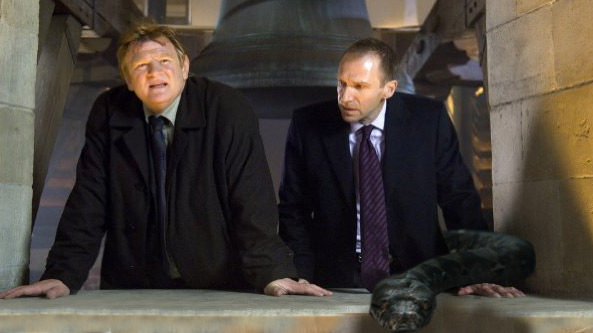
Whenever I see Brendan Gleeson show up as Mad Eye Moody I am overcome with the desire to see him confront Voldemort at the Hog’s Head In Bruges-style over some butter beers.
Moody: Voldemort, let’s face it. And I’m not being funny. I mean no disrespect, but you’re a cunt. You’re a cunt now. You’ve always been a cunt. And you’ll always be a cunt. Maybe make some more cunt horcruxes.
Voldemort: Leave my horcruxes fucking out of it! What have they ever done? You retract that bit about my cunt fucking horcruxes!
Moody: I retract that bit about your cunt fucking horcruxes.
Voldemort: insult my fucking horcruxes? That’s going overboard, mate!
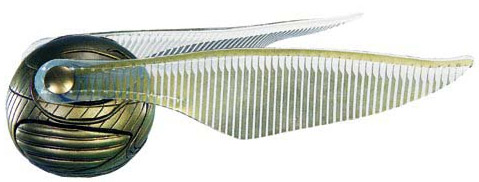 Want more?
Want more?
Reviews of Harry Potter and the Deathly Hallows Part Two from Jose and Nathaniel, a teary goodbye from JA who loved the series the most of any TFE contributor, a series lament from Michael in which he posits that the films shouldn't have started production until very recently. (Interesting!)
Your turn!
Talking about its box office is boring which seems to be the convo du jour. (The franchise continues to fill JK Rowling's endless vault at Gringotts. The end.) You know you want to answer those five questions in the comments! Or just a couple of them. Your choice.
 Wednesday, August 10, 2011 at 9:12PM
Wednesday, August 10, 2011 at 9:12PM 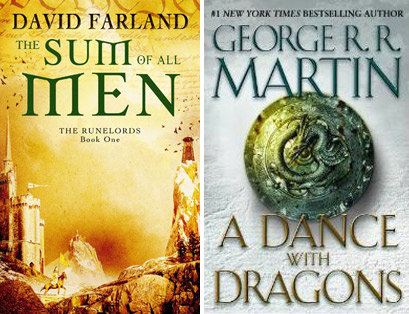 So last night I finished the first book of the The Runelords series "The Sum of All Men" by David Farland. I had heard that it would eventually be a movie so when my brother suggested I read it last month on my vacation, I gladly grabbed it for the airplane time. [Note: turns out the movie option ran out last year and Farland has the rights again.] The book concerns the young naive prince Gaborn whose quest to win the heart of a neighboring kingdom's progressive idealistic princess Iome is interrupted by an invading army of the Runelord Raj Athan who seeks to become "The Sum of All Men".
So last night I finished the first book of the The Runelords series "The Sum of All Men" by David Farland. I had heard that it would eventually be a movie so when my brother suggested I read it last month on my vacation, I gladly grabbed it for the airplane time. [Note: turns out the movie option ran out last year and Farland has the rights again.] The book concerns the young naive prince Gaborn whose quest to win the heart of a neighboring kingdom's progressive idealistic princess Iome is interrupted by an invading army of the Runelord Raj Athan who seeks to become "The Sum of All Men".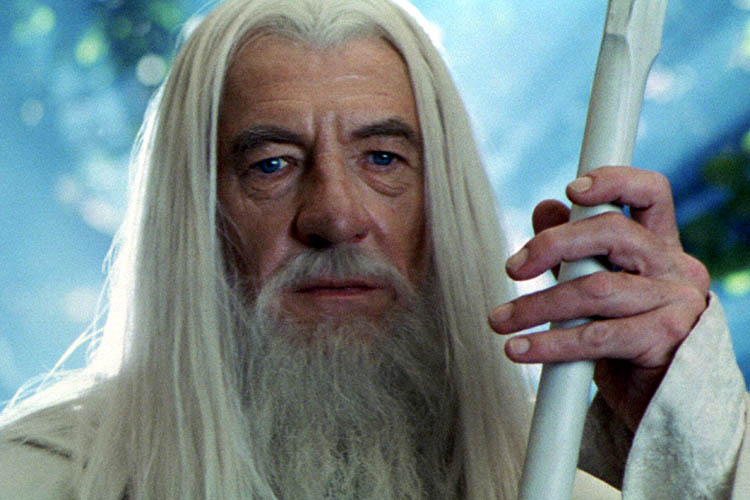 Gandalf the Grey... no, WHITE. Most of the major characters in the book are those who have received "endowments" from others so they're all amazingly beautiful or super strong or what not; superheroes in medieval frocks and cloaks if you will. If they're not runelords they're wizards. The major wizard Binneman is basically Gandalf since he's very powerful, very wise, very old and his hair and wardrobe changes colors once he moves to the next stage of his power. But then, what wizard isn't Gandalf? He casts a long long shadow on fantasy literature.
Gandalf the Grey... no, WHITE. Most of the major characters in the book are those who have received "endowments" from others so they're all amazingly beautiful or super strong or what not; superheroes in medieval frocks and cloaks if you will. If they're not runelords they're wizards. The major wizard Binneman is basically Gandalf since he's very powerful, very wise, very old and his hair and wardrobe changes colors once he moves to the next stage of his power. But then, what wizard isn't Gandalf? He casts a long long shadow on fantasy literature.


